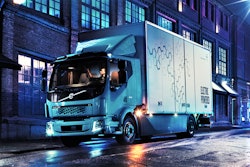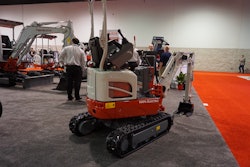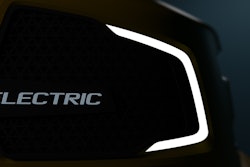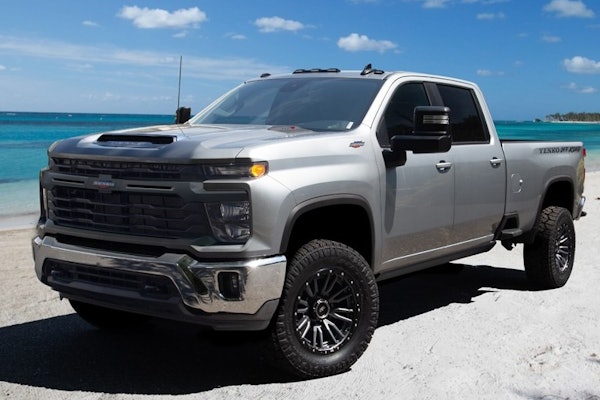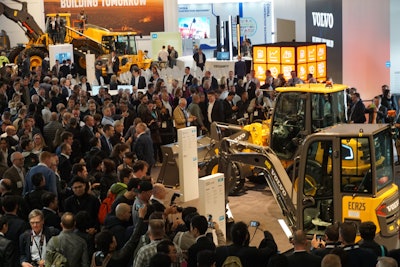 Construction paparazzi: Crowds gather at Volvo’s unveiling of its electric ECR25 excavator and L25 wheel loader at Bauma.
Construction paparazzi: Crowds gather at Volvo’s unveiling of its electric ECR25 excavator and L25 wheel loader at Bauma.When Melker Jernberg, Volvo Construction Equipment president, is asked why North American contractors would buy a battery-powered electric-drive machine, he quickly counters with “why should they not?'”
Volvo CE turned heads in January when it announced it would unveil its ECR25 compact excavator and L25 compact wheel loader at the Bauma trade show, taking place in Munich, Germany this week.
Not because they were zero-emissions electric machines — that’s becoming an every-other-day announcement — but because the company also announced that it would eventually no longer offer diesel versions of these machines.
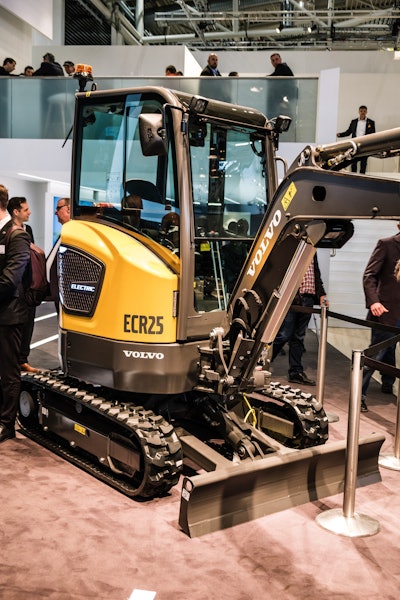 ECR25 electric excavator. Photo: Wayne Grayson
ECR25 electric excavator. Photo: Wayne GraysonIn the announcement, Volvo said it would become “the first construction equipment manufacturer to commit to an electric future for its compact machine range.”
Melker clearly feels going all-electric with these machines will give Volvo CE a distinction in the crowded compact equipment market.
“We are as not strong in the compact segment,” he says. “This gives a chance to be relevant in the compact area,” he told Equipment World.
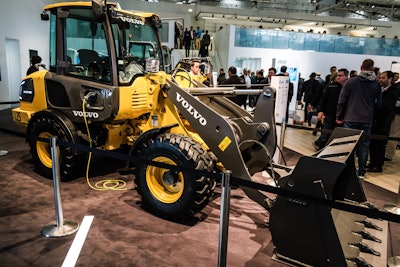 L25 electric wheel loader. Photo: Wayne Grayson
L25 electric wheel loader. Photo: Wayne Grayson“The electric-drive market right now is not there, so the feeling was, ‘let’s create it.’ We also feel the timing is right. Someone needs to start,” Jernberg says.
Helping underline that feeling, Jernberg reports that five minutes after the machine unveiling, Volvo CE sold a L25 wheel loader to a Scandinavian construction firm. “He told us, ‘I would like to be part of the change,'” he comments.
That customer is going to have to wait a bit: the L25 and ECR25 won’t be available until summer 2020.
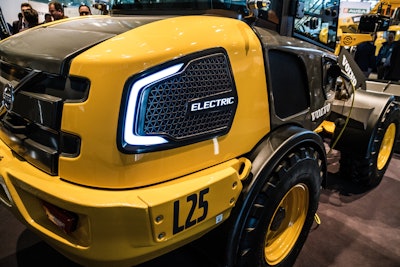 Photo: Wayne Grayson
Photo: Wayne GraysonThe engines on both machines have been replaced with lithium-ion batteries. The excavator uses these batteries plus one electric motor to power the hydraulics, and will last eight hours in most common applications. The L25 uses two dedicated electric motors, one for the drivetrain and one for the hydraulics, and also has an eight-hours cycle. Charging is accomplished overnight using a common household outlet. Volvo also plans to have a fast-charging option.
One question naturally arises: won’t the electric-drive machines be more expensive than standard machines? While that will be likely, Jernberg counters that entire lifecycle costs need to be brought into the equation, with the electric-drive machines costing less to “fuel” and operate.
Volvo’s continuing Electric Site research project, conducted in a Skanska’s quarry in Sweden last year — and which saw a 98 percent reduction in carbon emissions — shows that battery powered larger machines will also have a place in the electric-drive future, Jernberg says.
“But the natural place to start is with these compact machines,” he adds.
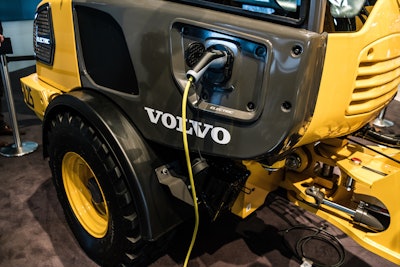 Photo: Wayne Grayson
Photo: Wayne Grayson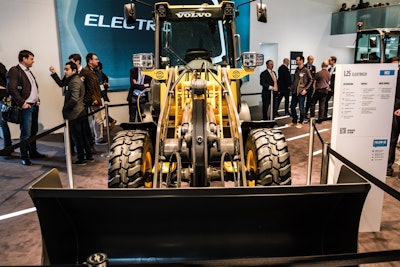 L25. Photo: Wayne Grayson
L25. Photo: Wayne Grayson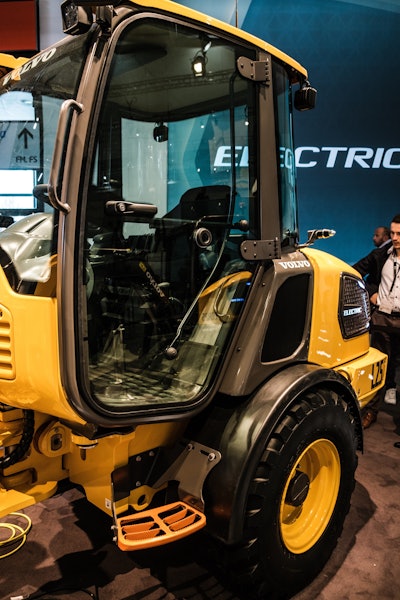 L25. Photo: Wayne Grayson
L25. Photo: Wayne Grayson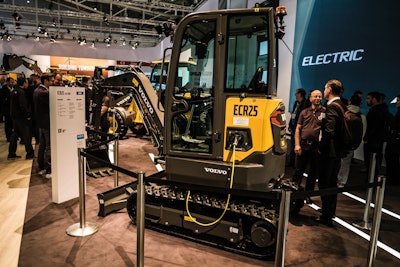 ECR25. Photo: Wayne Grayson
ECR25. Photo: Wayne Grayson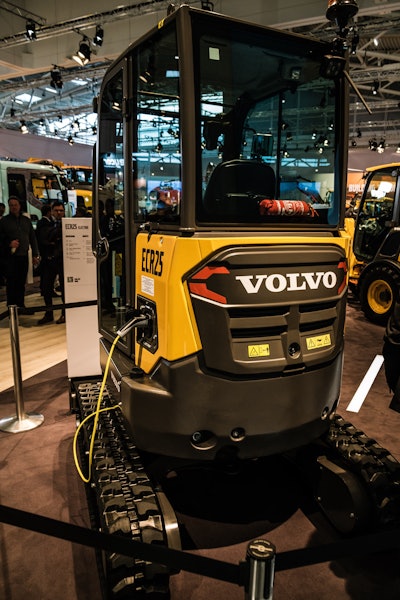 ECR25. Photo: Wayne Grayson
ECR25. Photo: Wayne Grayson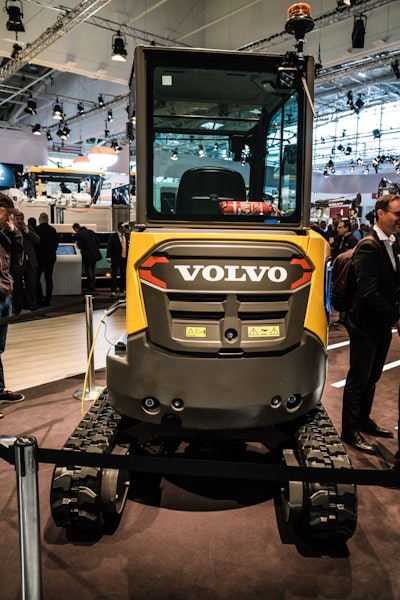 ECR25 Photo: Wayne Grayson
ECR25 Photo: Wayne Grayson Photo: Wayne Grayson
Photo: Wayne Grayson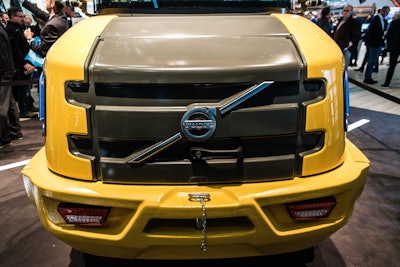 L25. Photo: Wayne Grayson
L25. Photo: Wayne Grayson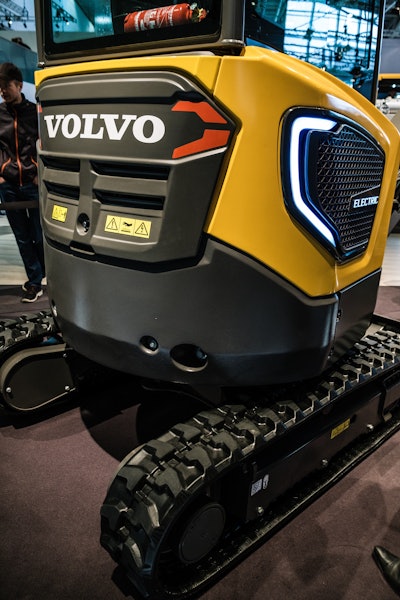 ECR25. Photo: Wayne Grayson
ECR25. Photo: Wayne Grayson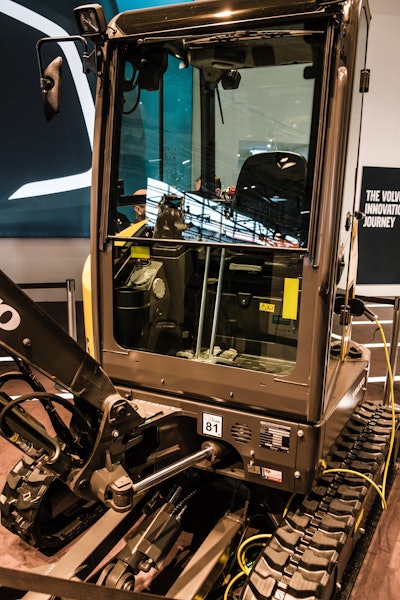 ECR25. Photo: Wayne Grayson
ECR25. Photo: Wayne Grayson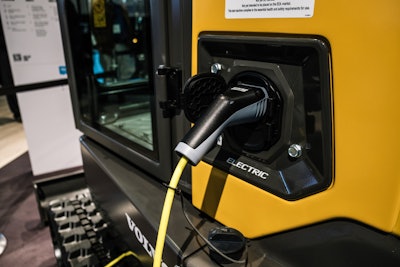 ECR25. Photo: Wayne Grayson
ECR25. Photo: Wayne Grayson

